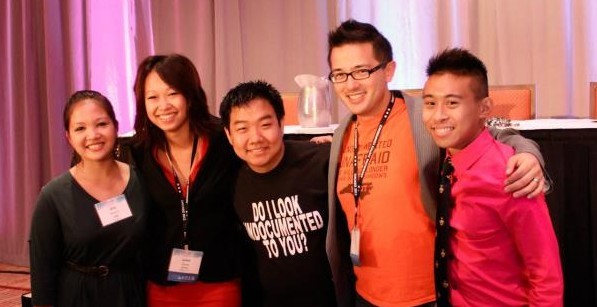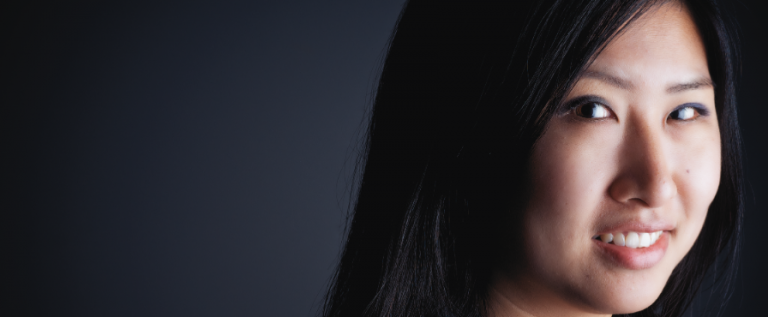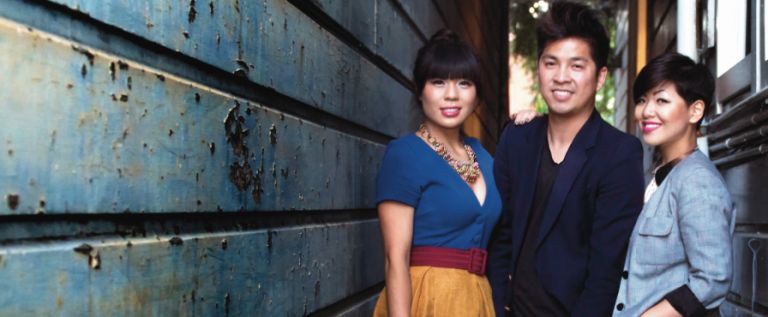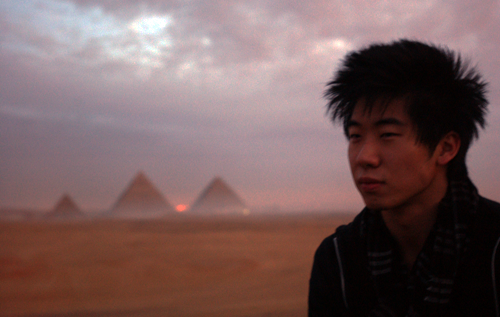“Advancing Justice” Thoughts

This year I was fortunate enough to be accepted as a speaker for a youth leadership/identity panel at the Advancing Justice Conference in Chicago. It was a fantastic weekend full of passionate people, icons, leaders, and role models from all corners of the country. The panel’s title was “Seeing the Personal as Political” and revolved around campus organizing, Asian American identity, and how the two intertwine.
I spent most of my childhood and adolescence in Scottsdale, Arizona. Scottsdale is an upper middle-class suburb of Phoenix with very little diversity. There was a lot of confusion growing up, and also a lot of influence from my parents that I didn’t see until now. For instance, I grew up in a matriarchal household with a powerful mother who despite holding an equal position as my father in the same research institute they worked in, dominated our home (in a good way!). My mother instilled the foundation for my feminist values and pride in my culture. She not only took on a stint as principal of the local Chinese school, opened up a Chinese art/dance/language school, but also organized the first Dragon Boat races in Arizona – which are still going on today. Because of my mother, I studied Chinese folk dance for years. Because of my mother, I have ties to Asian American childhood friends that somehow don’t decay. I owe her a lot. But even with all the culture and pride surrounding me, the pressure to assimilate was still stronger.
It was a pretty messy combination of Scottsdale, casual and blatant racism I faced on a daily basis (including some white children doing the eye-slant and chant “Chinese Japanese, dirty knees look at these”), somehow stumbling upon Angry Asian man when I was 9 years old, and going to Chinese school on the weekends. However, my brother was briefly interested in the “Azn Pride” movement in the 90’s and had Azn Pride, Got Rice, and other icons plastered all over his room. I was heavily racist and sexist. I will say that just to put it on the table. I made “women in the kitchen” jokes, allowed people to call me “Chinky” and the “Asian Invasian”, and made homophobic, transphobic, and bigoted remarks while still parading myself as a “liberal Arizonan”.
I think there comes a dark period of time in everyone’s life (especially Asian Americans) when they go through an identity crisis. I literally had a fever break and woke up a new person. To me, saying that I am Asian American is saying that I’m not the other white meat. I’m not just my ethnic make up either. I am definitely not an object to be fetishized or won. I’m a living document of oppression and injustice against my people. I am the conglomeration of two worlds, two cultures, two names, two histories, and two identities. Finding and accepting my identity as an Asian American woman (and womanist) has been the greatest thing to ever happen to me.
I learned about my identity through my blog, Fascinasians. I had a vague idea of what being an Asian American woman meant at first, but once I created it and started listening to and talking to other bloggers I was addicted. I fell in love with Helen Zia’s Asian American Dreams. Bao Phi’s Sông I Sing. Daryl Maeda’s Chains of Babylon. Anthologies like Colonize This! and Dragon Ladies: Asian American Feminists Breathe Fire. bell hooks. Kelly Zen-Yie Tsai’s poetry. Yellow Rage. Spoken word poetry on YouTube. Bambu, Blue Scholars, and Rocky Rivera. The virtual world became my classroom for an unofficial major in Asian American studies.
And when it comes to campus organizing, someone at the conference said it best: “We’re all at varying levels of readiness.” We as organizers and advocates for the Asian American community cannot expect someone to immediately embrace an identity and history that we at times shove in their faces. For campuses dealing with apathy, it gets tough. It’s a battle we all face. It may be difficult at times, but we can navigate the blurriness that often comes with the Asian American community. Simple things like finding balance between social and educational events by student organizations. Bigger things like collectively working with other student groups, states, campuses, oppressed peoples, and political believers in order to form a more united and stronger force.
We are not alone. We cannot do this alone. We have to remember that oppression is connected and includes class, gender, sex, race, age, immigration status, ability, and wealth. There is no prioritizing one singular and one-dimensional aspect of oppression. Only when we tackle everything head on can we hope to make progress.





